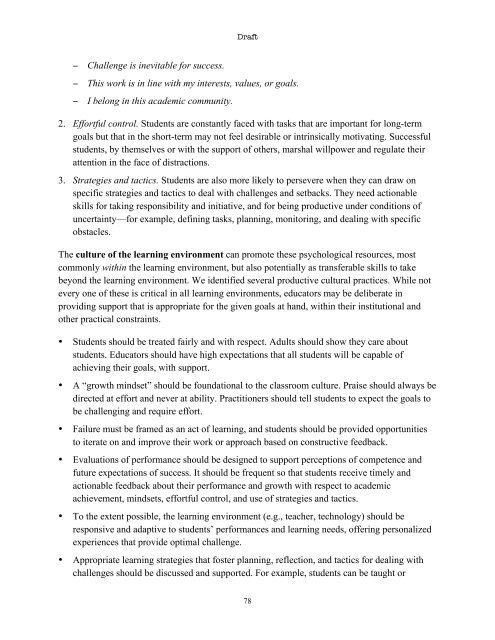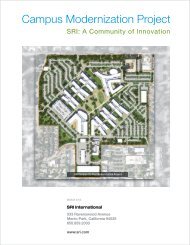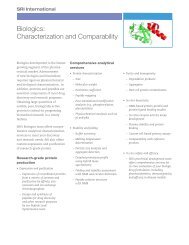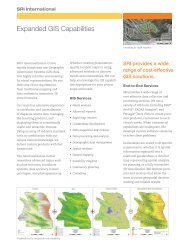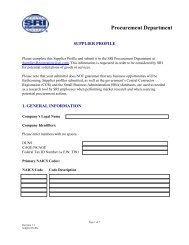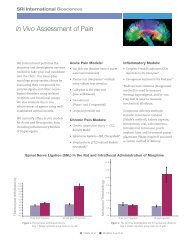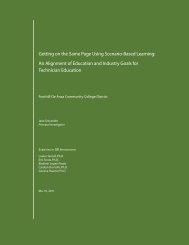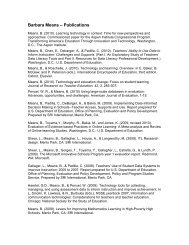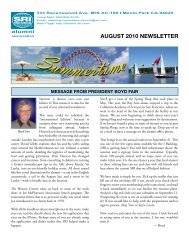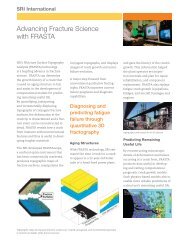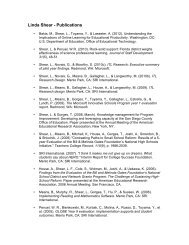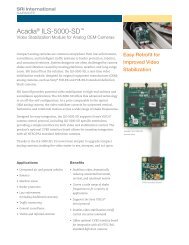Promoting Grit, Tenacity, and Perseverance - U.S. Department of ...
Promoting Grit, Tenacity, and Perseverance - U.S. Department of ...
Promoting Grit, Tenacity, and Perseverance - U.S. Department of ...
Create successful ePaper yourself
Turn your PDF publications into a flip-book with our unique Google optimized e-Paper software.
Draft<br />
− Challenge is inevitable for success.<br />
− This work is in line with my interests, values, or goals.<br />
− I belong in this academic community.<br />
2. Effortful control. Students are constantly faced with tasks that are important for long-term<br />
goals but that in the short-term may not feel desirable or intrinsically motivating. Successful<br />
students, by themselves or with the support <strong>of</strong> others, marshal willpower <strong>and</strong> regulate their<br />
attention in the face <strong>of</strong> distractions.<br />
3. Strategies <strong>and</strong> tactics. Students are also more likely to persevere when they can draw on<br />
specific strategies <strong>and</strong> tactics to deal with challenges <strong>and</strong> setbacks. They need actionable<br />
skills for taking responsibility <strong>and</strong> initiative, <strong>and</strong> for being productive under conditions <strong>of</strong><br />
uncertainty—for example, defining tasks, planning, monitoring, <strong>and</strong> dealing with specific<br />
obstacles.<br />
The culture <strong>of</strong> the learning environment can promote these psychological resources, most<br />
commonly within the learning environment, but also potentially as transferable skills to take<br />
beyond the learning environment. We identified several productive cultural practices. While not<br />
every one <strong>of</strong> these is critical in all learning environments, educators may be deliberate in<br />
providing support that is appropriate for the given goals at h<strong>and</strong>, within their institutional <strong>and</strong><br />
other practical constraints.<br />
• Students should be treated fairly <strong>and</strong> with respect. Adults should show they care about<br />
students. Educators should have high expectations that all students will be capable <strong>of</strong><br />
achieving their goals, with support.<br />
• A “growth mindset” should be foundational to the classroom culture. Praise should always be<br />
directed at effort <strong>and</strong> never at ability. Practitioners should tell students to expect the goals to<br />
be challenging <strong>and</strong> require effort.<br />
• Failure must be framed as an act <strong>of</strong> learning, <strong>and</strong> students should be provided opportunities<br />
to iterate on <strong>and</strong> improve their work or approach based on constructive feedback.<br />
• Evaluations <strong>of</strong> performance should be designed to support perceptions <strong>of</strong> competence <strong>and</strong><br />
future expectations <strong>of</strong> success. It should be frequent so that students receive timely <strong>and</strong><br />
actionable feedback about their performance <strong>and</strong> growth with respect to academic<br />
achievement, mindsets, effortful control, <strong>and</strong> use <strong>of</strong> strategies <strong>and</strong> tactics.<br />
• To the extent possible, the learning environment (e.g., teacher, technology) should be<br />
responsive <strong>and</strong> adaptive to students’ performances <strong>and</strong> learning needs, <strong>of</strong>fering personalized<br />
experiences that provide optimal challenge.<br />
• Appropriate learning strategies that foster planning, reflection, <strong>and</strong> tactics for dealing with<br />
challenges should be discussed <strong>and</strong> supported. For example, students can be taught or<br />
78


